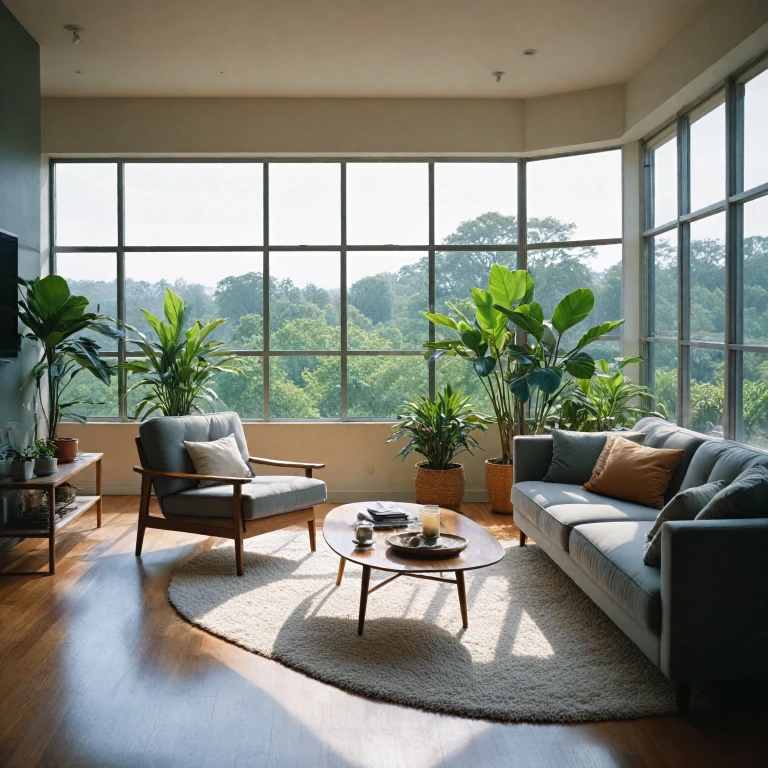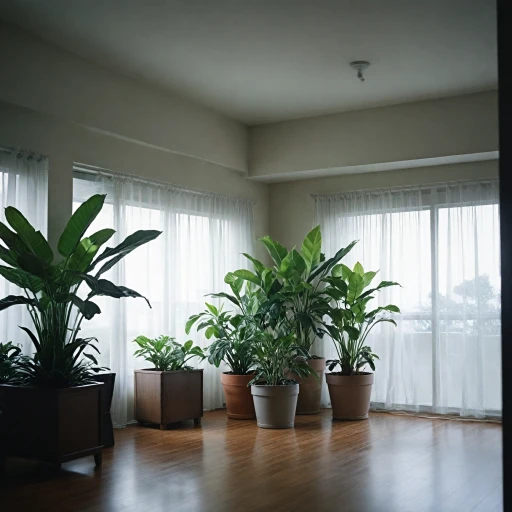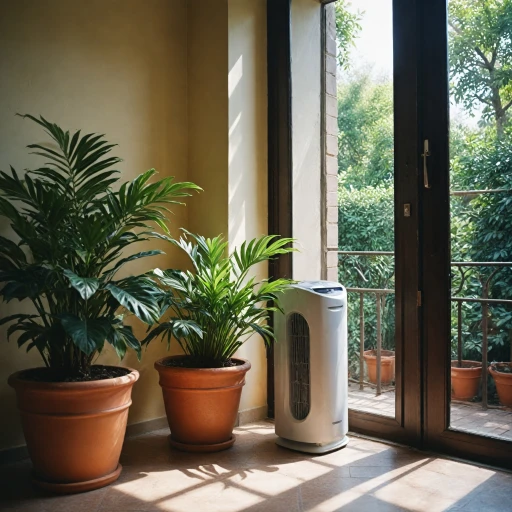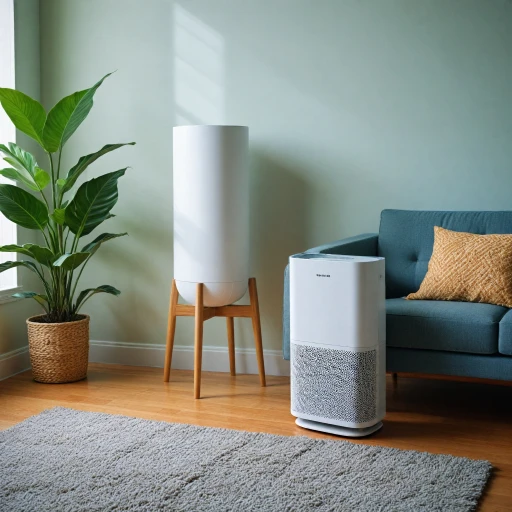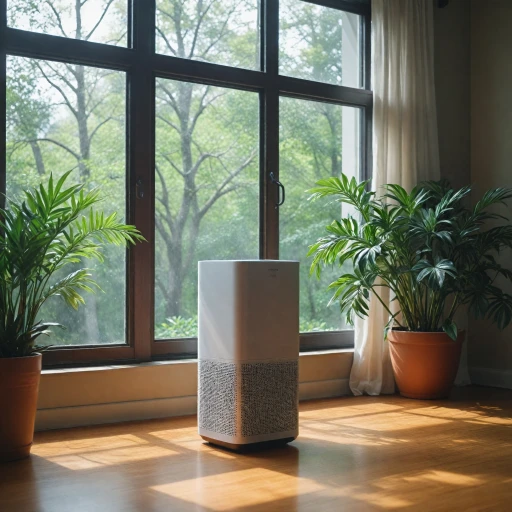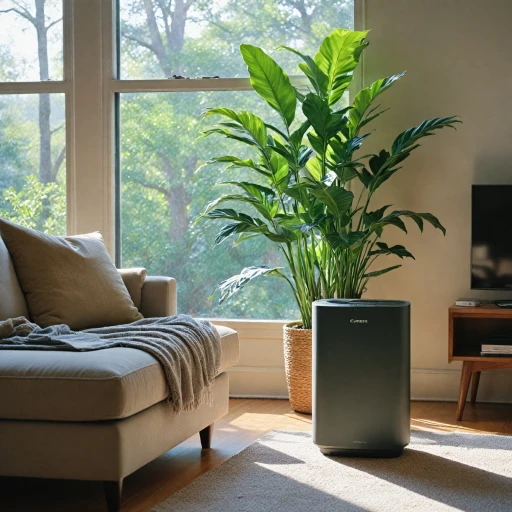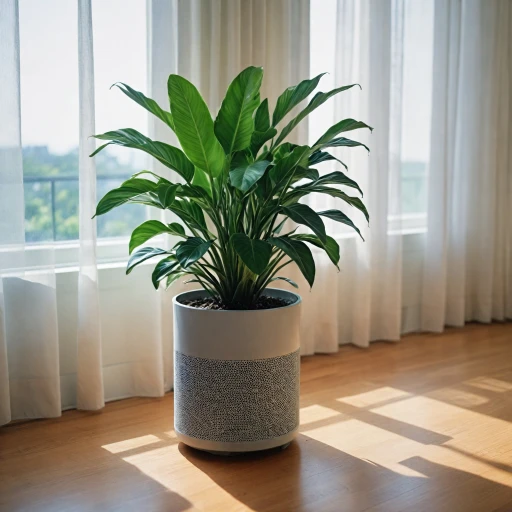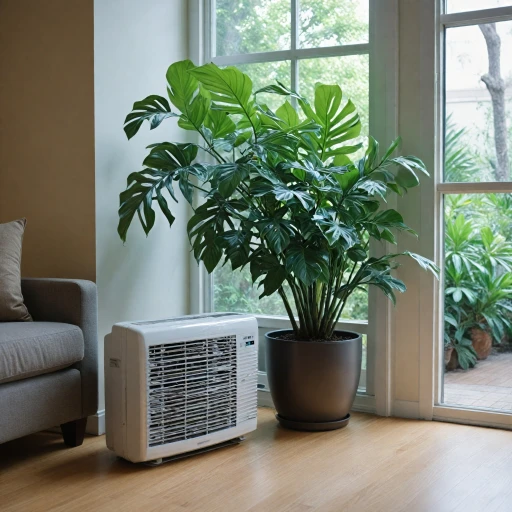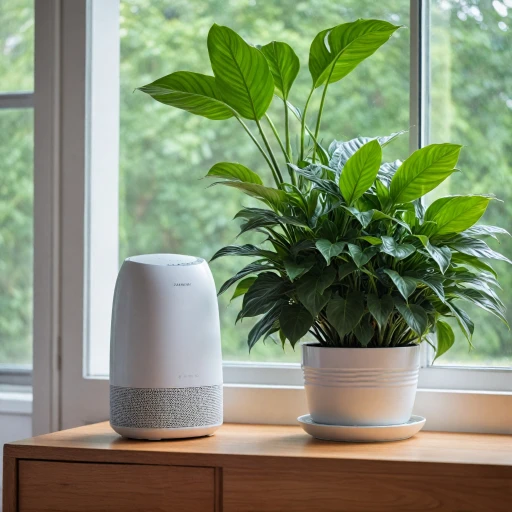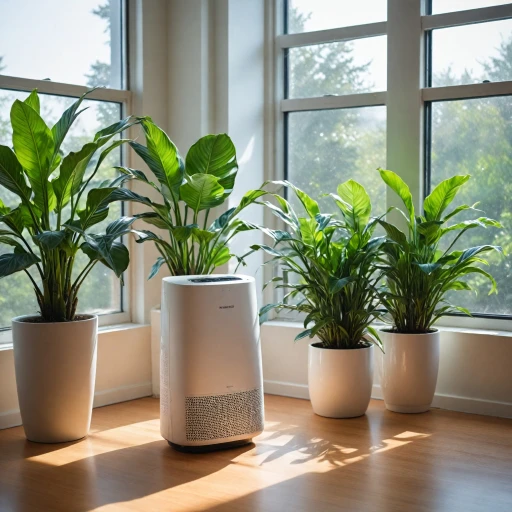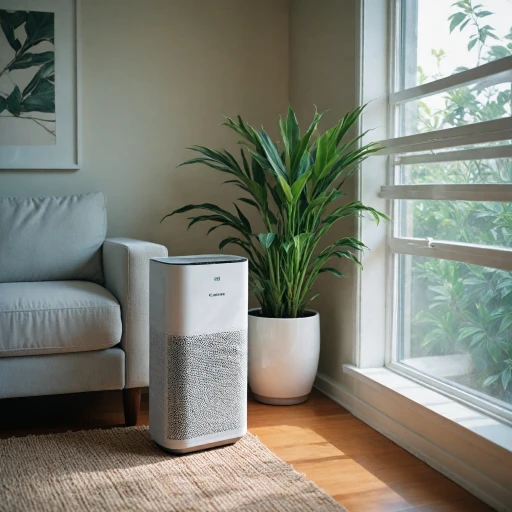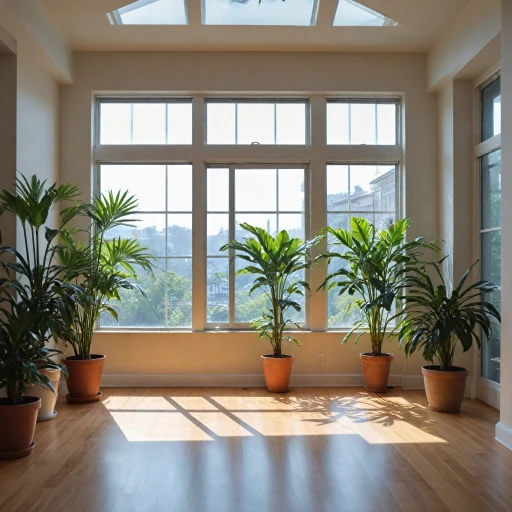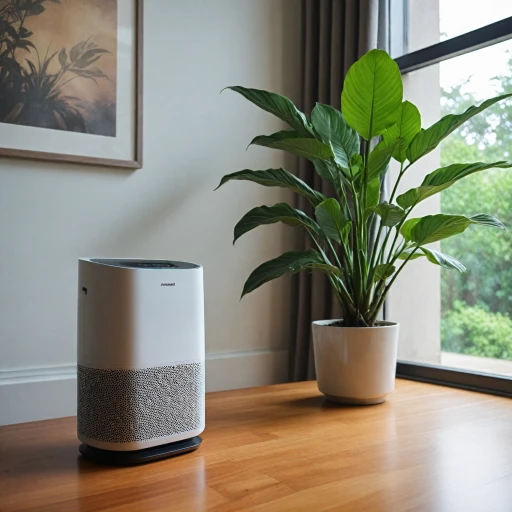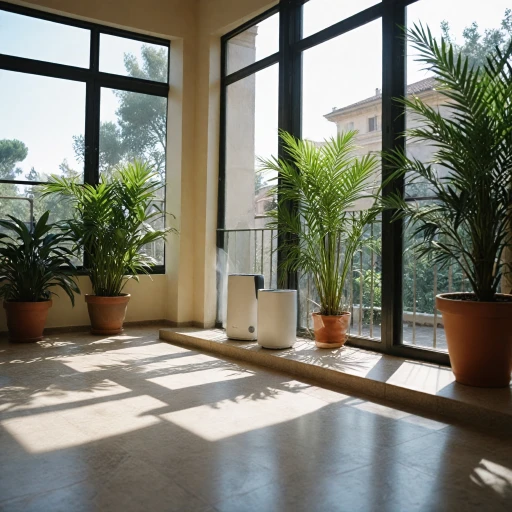
Understanding Whole House HEPA Systems
Delving into the Mechanics of Whole House HEPA Systems
To comprehend the intricacies of whole house HEPA systems, it's pivotal to recognize how they harness advanced technology to enhance indoor air quality. At their core, HEPA filters are celebrated for their ability to capture a high percentage of airborne particles, such as dust, pollen, and even some bacteria and viruses. Whole house systems integrate these robust filters directly into your existing HVAC setup, with the aim of purifying the air circulating throughout your entire home rather than just one room. This comprehensive approach stands in contrast to portable air purifiers, which target specific spaces but might not offer the same extensive reach. The components of a HEPA system, especially the filter, play a critical role in ensuring clean air. These filters are designed to meet True HEPA standards, capable of trapping particles as small as 0.3 microns with impressive efficiency. Such filtration ensures that even the tiniest of pollutants don't slip through unnoticed, contributing significantly to improved air quality. An advantage these whole house systems have over portable alternatives is their integration into the HVAC system, offering streamlined operation and consistent purification without occupying room space. However, it's important to consider the initial price and potential energy efficiency benefits and how these might influence your decision. For a closer look at how a specific filtration system functions and its benefits, delve into a 14-inch air cleaner. This can provide valuable insights as you assess the suitability of a whole house HEPA system for your home environment.Benefits of Whole House HEPA Filtration
Reasons to Consider Whole House HEPA Filtration
Whole house HEPA systems are a comprehensive approach to enhancing indoor air quality. These systems utilize high-efficiency particulate air (HEPA) filters, known for capturing up to 99.97% of airborne particles, including dust, pollen, and mold spores. By integrating a HEPA filtration system into your existing HVAC setup, you ensure that every room in your home benefits from clean air.
Compared to portable air purifiers, which only target specific areas, whole house HEPA systems deliver uniform air purification. This consistency is especially crucial for individuals with allergies or respiratory conditions, as it minimizes exposure to irritants and allergens throughout the entire household.
Moreover, these systems help maintain the overall air quality by effectively reducing the presence of harmful particles that can otherwise circulate through the HVAC system. Such comprehensive purification supports a healthier living environment, contributing to overall well-being.
It's also important to factor in the potential cost savings. While whole house HEPA systems might have a higher initial price compared to portable options, they can be more energy efficient and reduce the need for multiple units, ultimately offering better value in the long run. Regular maintenance, like replacing filters and ensuring proper installation, can further optimize performance and durability without widespread ozone production.
For a deeper understanding of how whole house HEPA systems can benefit your home, you might want to explore this detailed guide.
Installation and Maintenance Considerations
Installation Process and Key Considerations
Setting up a whole house HEPA system requires careful planning and professional installation to ensure optimal air purification. Unlike portable air purifiers, these systems integrate directly with your home's existing HVAC system, distributing clean air throughout every room. The installation process involves connecting the HEPA filtration unit to the HVAC system, which may require modifications to ductwork or additional components.
Maintenance for Consistent Air Quality
Regular maintenance is crucial to keep your whole house HEPA system functioning efficiently. This includes checking the HEPA filters and replacing them as needed, typically every 6 to 12 months, depending on the manufacturer's recommendations and the air quality in your area. Some systems also include pre-filters or carbon filters that help capture larger particles and odors, which may need more frequent replacement. Ensuring that the system is free from blockages and the HVAC system is in good working order will help maintain high air quality.
Professional vs. DIY Installation
While some homeowners may be tempted to install a whole house HEPA system themselves, professional installation is often recommended. A qualified technician can ensure that the system is properly integrated with your HVAC system, preventing issues such as air leaks or reduced efficiency. Additionally, professional installation may be required to maintain the warranty on the product, which can be an important consideration given the price and complexity of these systems.
Energy Efficiency and Long-Term Costs
Another important factor to consider during installation is the energy efficiency of the system. Whole house HEPA systems can be energy-intensive, but choosing a model with a high energy efficiency rating can help mitigate ongoing costs. It's also worth considering the potential impact on your energy bills, as well as the sale price of replacement filters and other components.
Comparing Whole House HEPA with Portable Air Purifiers
Whole House HEPA Systems vs. Portable Air Purifiers: A Comparative Look
When considering air purification options, it's essential to weigh the differences between whole house HEPA systems and portable air purifiers. Both options have unique advantages and potential drawbacks that can impact your decision.- Coverage Area: Whole house HEPA systems are integrated into your home's HVAC system, providing comprehensive air purification across all rooms. In contrast, portable air purifiers are designed for single-room use, making them ideal for targeted air quality improvement but limited in scope.
- Filtration Efficiency: Both systems utilize HEPA filters to capture airborne particles, including dust, pollen, and other allergens. However, whole house systems offer a consistent filtration level throughout the home, while portable units may vary in effectiveness depending on the room size and model.
- Installation and Maintenance: Installing a whole house HEPA system requires professional integration with your existing HVAC system, which can be more complex and costly. Portable air purifiers, on the other hand, are plug-and-play, requiring minimal setup. Maintenance for both systems involves regular filter replacements, but whole house systems may demand more frequent checks due to their extensive use.
- Cost Implications: The initial investment for a whole house HEPA system is typically higher than purchasing a portable air purifier. However, considering the long-term benefits of improved indoor air quality throughout your entire home, the price may justify itself over time. Portable units are more affordable upfront, but multiple units might be needed to cover larger spaces effectively.
- Energy Efficiency: Whole house systems operate in tandem with your HVAC system, potentially leading to increased energy consumption. Portable air purifiers can be more energy-efficient, especially if used selectively in high-traffic areas or rooms with specific air quality concerns.
Cost Implications and Energy Efficiency
Financial Considerations and Efficiency Aspects
When investing in a whole house HEPA filtration system, understanding its cost implications and energy efficiency is crucial. The initial price of a whole house HEPA system tends to be higher than that of portable air purifiers due to its extensive coverage and integration into the existing HVAC system. However, the value proposition often justifies the sale price given the enhanced purification and consistent clean air delivered throughout your home. While evaluating the cost of a whole house HEPA purifier, consider the following:- Initial Investment: The upfront cost for the system itself and possible modifications required for your HVAC system.
- Operational Costs: Although efficient, these systems do consume electricity; however, advancements in technology make them comparable to high-efficiency HVAC systems.
- Replacement Filters: Regular replacement of HEPA filters is necessary to maintain the quality of air purification. Ensure that the cost of replacement filters is factored into the long-term budget.
Choosing the Right Whole House HEPA System for Your Home
Factors to Consider in Selecting the Appropriate System
When it comes to choosing the right whole house HEPA system for your home, it's essential to consider several key factors to ensure optimal air quality and purification.- Assessment of Air Quality Needs: Evaluate your home's unique requirements in terms of air quality. Consider factors such as the size of your house, the presence of pets, or any allergies that household members may have. These variables can influence the type of system that would best suit your needs.
- Compatibility with HVAC System: Ensure that the chosen HEPA filtration system is compatible with your existing HVAC system. This will enable seamless integration and consistent high air quality throughout your home. An inefficient match could lead to increased energy consumption and reduced performance.
- Efficiency and HEPA Filter Quality: Not all HEPA filters are created equal. Look for systems that employ true HEPA filters, which are capable of capturing at least 99.97% of airborne particles as small as 0.3 microns. This will guarantee cleaner air and better protection against harmful particles.
- Cost and Long-Term Investment: Assess both the initial purchase price and long-term costs associated with filter replacements and maintenance. While a lower sale price might be appealing, consider the regular price of replacement filters and potential energy usage. Remember, a higher upfront cost might translate to better efficiency and long-term savings.
- Reliability and Product Reviews: Research the reputation of the products you're considering. Websites like Amazon provide valuable customer reviews that can offer insights into the system's performance, reliability, and overall satisfaction.
- Consideration of Ozone Emissions: While most HEPA systems do not produce ozone, ensuring the purifier in question does not emit ozone is crucial. This is especially important if the intention is to improve indoor air without introducing new pollutants.

